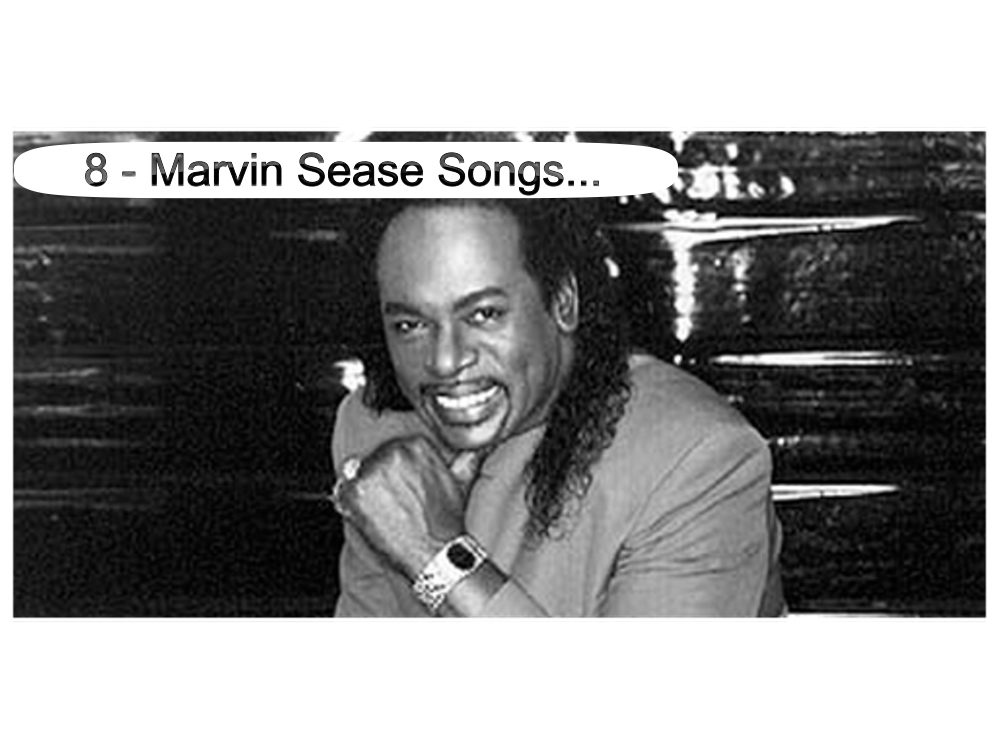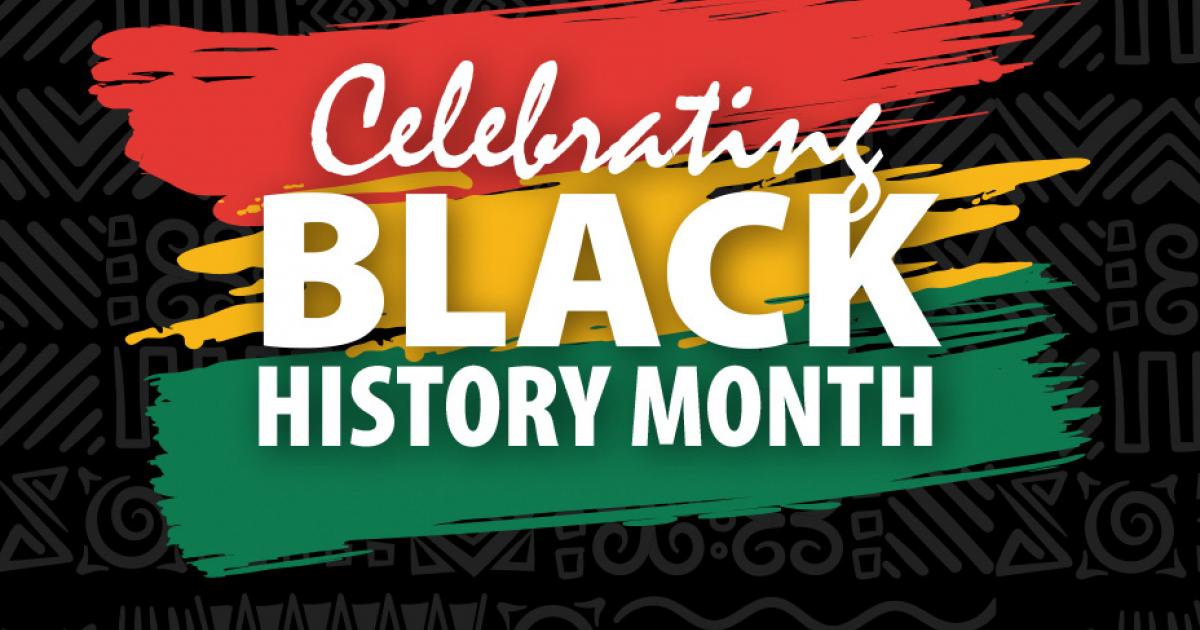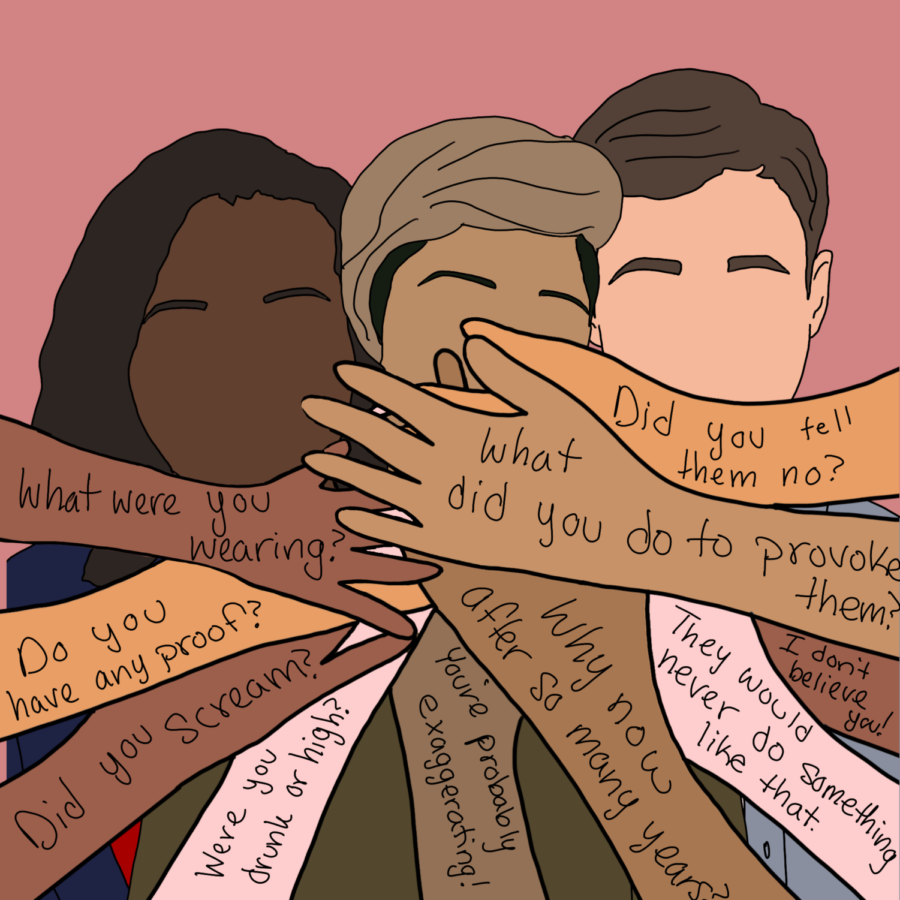(ThyBlackMan.com) When reflecting on the legacy of Southern soul and blues-infused R&B, Marvin Sease stands out as a figure both revered and controversial. Known for his unapologetically adult themes, Sease carved a unique lane outside the mainstream while amassing a devoted following across the Southern United States and beyond. While many remember him for his provocative lyrics and bold persona, a deeper dive into his discography reveals a versatile artist who could navigate romantic vulnerability, heartfelt storytelling, and gritty realism with equal command.
Sease’s music wasn’t crafted for commercial radio—it was made for the grown folks, the working class, and the unfiltered experiences of life and love. His songs pulsate with blues-rooted authenticity, often fusing gospel influences with a streetwise sensibility. Whether exploring sensual desire or emotional regret, he had a gift for telling stories that felt lived-in and real.
Exploring eight Marvin Sease tracks offers a deeper understanding of his talent, range, and cultural significance. These selections go beyond the shock value to highlight his artistry, vocal nuance, and the timeless emotional resonance of his work. For those unfamiliar with his deeper cuts—or for longtime fans ready to revisit the richness of his catalogue—these songs serve as a vital entry point into one of soul’s most distinctive voices.

1. “Candy Licker”
No Marvin Sease list is complete without “Candy Licker,” his most infamous and enduring song. Released in 1987, it’s the tune that branded him both a legend and a controversy in soul music. At nearly ten minutes long, “Candy Licker” isn’t radio-friendly by any stretch, but that was never the point. This song built its legend through word-of-mouth and adult audiences who passed it around like sacred text. The title alone is enough to raise eyebrows, but for those who give it a serious listen, there’s more here than shock value.
Musically, the track is a simmering slow jam, driven by a classic blues rhythm section and punctuated with gospel-style background vocals. Sease’s delivery is deliberate and conversational, filled with teasing pauses and a preacher-like cadence. He walks the line between sermon and seduction, making it feel like both confession and fantasy. The repetition of the chorus burns it into memory: scandalous to some, empowering to others, but unforgettable to all. It’s not merely provocative—it’s performance art in the form of a soul sermon.
What makes “Candy Licker” work beyond the shock factor is its honesty. There’s no shame, no subtlety, no attempt to filter adult desire. That rawness gives it staying power. In today’s world of hyper-sexualized lyrics cloaked in metaphors and digital filters, Sease’s straightforward approach feels refreshingly analog—like an unedited diary entry set to music. And though it might never grace the airwaves, it has long lived in the hearts of Southern soul fans who appreciate raw, uncut storytelling.
Revisiting “Candy Licker” today means stepping into a time when music for adults had a place to breathe. It’s a reminder of the cultural space carved out by the “chitlin’ circuit,” and of a time when music could be risqué without needing to be packaged for TikTok virality. It’s Marvin Sease at his most unfiltered, and that’s saying something. Even now, its underground appeal continues to inspire discussions about musical freedom, censorship, and the power of unapologetic expression.
2. “Ghetto Man”
“Ghetto Man” is one of Sease’s most poignant tracks—an autobiographical blend of blues, gospel, and social commentary. It paints the picture of a man trying to make sense of his circumstances, holding onto dignity in a world that often strips it away. Unlike the sexually charged themes of some of his more popular records, “Ghetto Man” is introspective and soulful, showcasing another dimension of his artistry. It’s not about seduction—it’s about survival.
The song opens with a church-like organ and blues guitar lick that immediately sets a reflective tone. Sease’s voice enters slowly, filled with restrained power. He doesn’t rush the delivery. Instead, he lets the words unfold like scripture. “I’m just a ghetto man,” he sings, not with shame but with the weary pride of someone who’s walked through fire and lived to sing about it. The narrative isn’t just personal—it speaks to a whole generation of Black men growing up in underserved communities with few resources but infinite resilience.
The beauty of “Ghetto Man” lies in its ability to uplift without sounding preachy. It acknowledges hardship but doesn’t glorify suffering. Instead, it becomes a declaration of self-worth in a world that rarely offers validation. Musically, it’s lush without being overproduced, with horns and background harmonies swelling in just the right moments to support his vocal grit. The track has a slow build, with Sease commanding attention not through vocal acrobatics, but by emotionally anchoring every word.
This song feels even more relevant today in conversations about class, race, and self-image. “Ghetto Man” is a powerful listen for anyone navigating identity in a world of preconceived notions. It reminds us that Marvin Sease wasn’t just the “Candy Licker” guy—he was also a poet of survival. And in today’s socio-political landscape, where discussions about systemic inequality are more important than ever, this track holds up as both a protest song and a personal testimony.
3. “I Ate You for My Breakfast”
Here’s where Marvin Sease gets playful in a different way. “I Ate You for My Breakfast” is raunchy, yes, but it’s also hilarious and charmingly theatrical. This track, off the 1991 album of the same name, gives us Sease in full blues showman mode. He isn’t just singing—he’s storytelling, grinning from ear to ear while winking at the audience through every double entendre. In many ways, it’s a throwback to the juke joint tradition of using humor to explore intimacy.
Sonically, the track leans hard into Southern soul and juke joint blues. The rhythm guitar struts along confidently, joined by a grooving bassline and horn flourishes that punctuate the cheeky delivery. Sease sets the scene like a stand-up comedian in a smoky bar, narrating a lustful tale that is outrageous and oddly disarming. His vocal phrasing is full of mischief—almost conversational at times—as if he’s confiding in the listener with a sly grin and raised eyebrow.
Lyrically, the song could be mistaken for pure novelty. But beneath the surface is an example of how Southern soul artists used humor and innuendo to navigate censorship and speak to adult desires without apology. Sease knew how to toe the line between naughty and nasty, always leaving just enough to the imagination to keep it entertaining. There’s a craft in how he builds tension, delivering punchlines with musical precision.
Today, “I Ate You for My Breakfast” plays like an adult comic strip set to music. In an era where sexual content in music often skews either overly explicit or plastic and emotionless, Sease’s wink-and-nudge approach reminds listeners of the fun in adult intimacy. It’s blues comedy wrapped in a soul groove—classic Marvin. It’s a track that celebrates grown folks’ business with flair and personality, and in doing so, carves out a unique lane in soul history.
4. “Do You Need a Licker?”
Another entry into his infamous “licker” series, “Do You Need a Licker?” builds on the legacy of “Candy Licker” but adds a more refined musical backdrop. It’s a smoother, more polished production, but the cheeky essence of Sease is still front and center. Where “Candy Licker” was raw and long-winded, this track is tighter, flirtier, and arguably more accessible for new listeners. It shows how Sease evolved his formula without diluting its provocative core.
The song is built around a seductive mid-tempo groove that pulls inspiration from both Southern soul and early ’90s R&B textures. Synths blend with traditional instrumentation, and Sease’s voice has lost none of its power or sass. The call-and-response interaction with background vocalists adds to the live performance feel, turning the whole song into a conversation between a man and his audience. It feels theatrical in the best way—like a soul opera playing out in real time.
There’s a confidence in this track that borders on playful arrogance. Sease isn’t just offering pleasure; he’s insisting that nobody does it better. And while the lyrics are dripping in innuendo, they’re delivered with enough swagger to avoid sounding crass. This balance is what made Marvin Sease stand out: he could turn outrageous lines into soul anthems with just the right amount of charm. It’s the kind of confident masculinity rarely seen in today’s overly curated love songs.
“Do You Need a Licker?” remains a fun listen today, especially for audiences who appreciate old-school R&B theatrics and Southern charisma. It’s Marvin Sease leaning into his brand while updating his sound, proving he could adapt without losing his identity. This track could easily fit into a late-night soul playlist or even a modern retro-themed R&B mix, reminding younger listeners of a time when artists weren’t afraid to be bold, funny, and fiercely themselves.
5. “Love Is a Game”
Hidden beneath Sease’s reputation for raunchy tracks is a wealth of songs like “Love Is a Game,” which proves he was just as capable of heartbreak and vulnerability as he was of lust and bravado. This track explores the emotional chaos of romance—how love can feel like a gamble where the house always wins. And in Sease’s case, the house always seems rigged. He delivers this lament with the weariness of someone who’s been dealt a bad hand too many times.
Musically, “Love Is a Game” is soaked in slow-burning blues and late-night soul. It’s the kind of song that feels like cigarette smoke and spilled drinks, like staring at the ceiling at 3 a.m. wondering where things went wrong. The instrumentation is sparse, letting Sease’s voice do the heavy lifting. And lift it does—he sounds wounded, reflective, and emotionally bare. His phrasing is thoughtful, lingering just enough on key lines to let the pain settle in.
The lyrics explore themes of betrayal and regret, with Sease singing not just from the perspective of a man wronged, but from someone who’s played the game and lost. There’s wisdom here, the kind that comes from living too fast and loving too hard. When he sings, “I thought love was forever, but now I know it’s just a game,” it lands like a hard-earned lesson rather than a casual observation. He’s not bitter—he’s just honest about the risk that comes with opening your heart.
Today, “Love Is a Game” hits home for anyone who’s felt the sting of unreciprocated emotion or gotten lost in the chaos of a toxic romance. It’s a reminder that Marvin Sease wasn’t a one-note performer—he was capable of conveying complex emotional narratives with soulful precision. In fact, this song serves as a blueprint for today’s heartache R&B. If you enjoy artists like Brent Faiyaz or Giveon, don’t overlook the emotional groundwork Sease laid decades earlier.
6. “Tonight”
With “Tonight,” Marvin Sease delivers one of his most romantic and musically lush performances. It’s a ballad that leans into seduction with warmth and sincerity, focusing less on innuendo and more on emotional connection. It’s the kind of love song that sounds best under dim lights, where the mood is just as important as the melody. For an artist often remembered for his provocative lyrics, this track is a glowing example of how tenderness was always part of his artistic palette.
The arrangement is elegant—sweeping strings, light keyboard flourishes, and a steady bassline guide the listener through a sonic slow dance. Sease’s voice is restrained and intimate here. He doesn’t oversing; he lets the vulnerability shine through. It’s clear he’s not trying to impress—he’s trying to connect. The sincerity in his tone makes the lyrics more than just lines; they feel like a conversation with a lover who’s earned his trust.
“Tonight” showcases a different kind of sensuality. It’s not aggressive or provocative. Instead, it’s about presence, about being in the moment with someone and making them feel cherished. That kind of romantic approach to soul music has become increasingly rare in the streaming era, where immediacy often replaces intimacy. Sease gives us slow-burning passion, and it lingers like perfume on the skin.
This track still resonates for those who value emotional sincerity over flash. “Tonight” isn’t trying to go viral—it’s trying to make you feel something deeply. And in that sense, it achieves its goal beautifully. It’s a testament to Marvin Sease’s ability to speak to multiple dimensions of love, not just the physical. Even now, it remains a top-tier selection for couples who want to hear a man profess love with soulful vulnerability, not just bravado.
7. “I Can’t Believe”
One of Sease’s later-career tracks, “I Can’t Believe” comes from his 2001 album The Bitch Git It All. Don’t let the title of the album fool you—this song is all heart. It’s a soulful lamentation about disbelief and loss, marked by a mature vocal performance that shows the seasoned wear of years on the road and in the studio. Sease sounds older here—not in a diminished sense, but in the way that suggests emotional weathering and hard-earned wisdom.
The track is built around a melancholy chord progression and a restrained rhythm section. There’s a gospel undertone, suggesting Sease never strayed too far from his roots, even as his content evolved. His vocals here are mournful, almost whispery in places, before building to a passionate crescendo. The buildup feels like a storm gathering—quiet at first, then emotionally thunderous as he lets his pain spill over.
What makes “I Can’t Believe” special is its emotional layering. On the surface, it’s a song about not being able to accept that someone you love is gone. But underneath that is a deeper commentary on aging, change, and coming to terms with life’s unpredictability. It’s Sease’s voice that carries this weight—gravelly, vulnerable, but still full of fire. He doesn’t wallow in sadness; instead, he allows grief to speak clearly through him.
In today’s music landscape, where older artists are often pushed aside for fresher voices, “I Can’t Believe” serves as a reminder of the wisdom that experience brings. It’s not just a good song—it’s a necessary one. It tells us that Marvin Sease was still evolving, even in his later years. And for anyone navigating life’s losses—be they romantic, familial, or existential—this song feels like a friend who’s been through the same thing and decided to sing about it so you wouldn’t feel alone.
8. “Loving You Is Mellow”
There’s something inherently soothing about “Loving You Is Mellow.” It’s a track that leans into gentleness, exploring love not as a stormy affair but as a peaceful, nurturing experience. The phrasing in the title is perfect—“mellow” isn’t a word you hear in songs much anymore, but Sease makes it feel like a virtue. Long before he found notoriety with his more explicit material, Sease was crafting love songs like this—songs that made space for tenderness.
The melody glides like a slow dance. There are no surprises in the arrangement—just warm guitars, light percussion, and Sease’s honeyed voice anchoring the entire experience. It’s a track that plays like a love letter, not in grand gestures but in quiet gratitude. This is love with maturity, where comfort and emotional safety take center stage. Every note feels intentional, as if Sease is trying to preserve the feeling of real love like a memory in song form.
This song is particularly important for how it redefined masculinity in R&B at the time. Sease wasn’t posturing or pleading—he was content, even proud, to love in a soft, undramatic way. That kind of emotional transparency is rare, even today. In fact, you could draw a straight line from this track to the work of contemporary crooners like Leon Bridges, Eric Roberson, or Daniel Caesar. The message? That real men don’t need to perform pain or dominance to express love.
“Loving You Is Mellow” is best listened to when you’re in a space of reflection or romantic comfort. It’s about feeling seen, cared for, and emotionally understood. In a culture that too often equates love with drama, Sease reminds us that peace can be just as powerful. This track may not get as much attention as his more risqué material, but for many longtime fans, it’s one of his most honest and enduring pieces—a reminder that Marvin Sease could soothe just as easily as he could shock.
Revisiting these eight songs affirms what true soul aficionados have long understood—Marvin Sease was far more than the sum of his headlines. His music told stories that resonated with real people facing real emotions, from the ecstatic highs of passion to the sobering truths of loss and longing. His voice could be smooth or gritty, tender or commanding, but it was always rooted in emotional honesty.
In an era where R&B often leans toward digital polish and algorithm-friendly formulas, Sease’s raw, organic sound remains a reminder of what soul music was meant to do: reflect lived experience without compromise. His legacy thrives not just through his most notorious songs, but also through ballads, blues narratives, and deeply personal declarations that continue to speak to audiences across generations.
For listeners seeking music with depth, character, and unapologetic humanity, Marvin Sease’s body of work is a rich archive well worth exploring. These eight tracks merely scratch the surface, but they showcase the heart of an artist who remained true to his voice and his audience—no matter the trends, no matter the critics.
Staff Writer; Jamar Jackson

















Leave a Reply